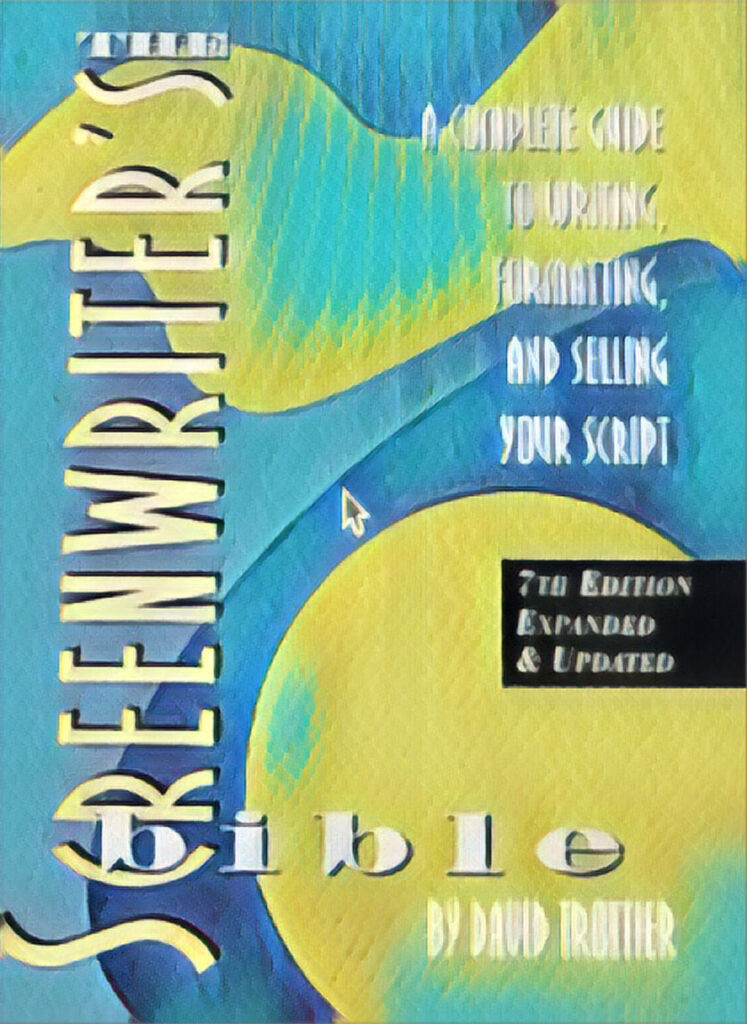In the beginning, there was The Screenwriter’s Bible by Dave Trottier.
And it was good.
And he wrote the 10 Commandments on page 250 of the Seventh Edition.
And it was good.
And I’m writing them out here to help you.
Because I’m good. (And here they are).

The 10 Commandments of Screenplay Formatting
“Certain things turn off most professional readers, agents, and producers. Don’t do any of the following unless requested.
- Don’t include fancy covers, artwork, illustrations, or storyboards.
- Don’t number the scenes. This is done after the script is sold.
- Don’t justify right margins. Leave the right margin ragged.
- Don’t use camera or editing directions unless there is an overriding dramatic or comedic purpose.
- Don’t date your script in any way. Scripts get “old” fast.
- Don’t write “First Draft,” “Final Draft,” or any draft.
- Don’t include a suggested cast list, character list, set list, or budget.
- Don’t include a header (such as your name or title) at the top of each page.
- Don’t “cheat” by using thinner left and right margins, by squeezing extra lines onto a page, by using a smaller typeface, by using a fancy font or proportional font, or by widening dialogue lines beyond 4 inches. Your formatting software will provide acceptable methods of cheating; also see “When to break the rules” later in this book.
- Don’t type CONTINUED at the top or bottom of each page.
The above commandments may seem nitpicky, but they’re easy to comply with, and adhering to them places you in the realm of the professional writer in the know. Obviously, if your script is wonderful but breaks one or two of these commandments, it is probably not going to be rejected. But why not give yourself every advantage to make sure your script is read in the first place?
In addition, some agents or producers may make a request that violates one or more of these conventions or other guidelines in this book. In such a case, give the agent or producer what she requests. In reality, formatting is a bit easier these days because the use of special devices is often discouraged.”

